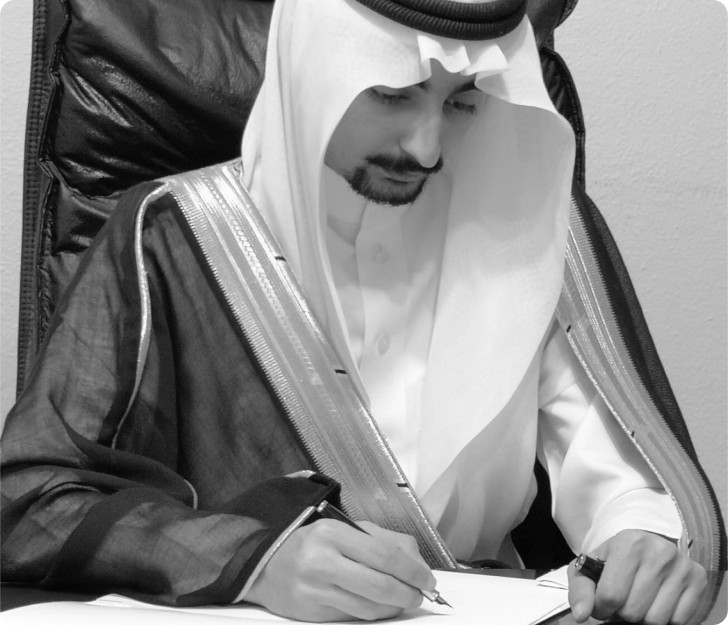What is Neutral Evaluation in Saudi Arabian Dispute Resolution?
What is Neutral Evaluation in Saudi Arabian Dispute Resolution?
Neutral evaluation has become an influential tool in the landscape of Saudi Arabian dispute resolution. As businesses and individuals increasingly seek efficient and cost-effective alternatives to traditional litigation, understanding how neutral evaluation fits into the broader context of Alternative Dispute Resolution (ADR) is essential. The team at Khalaf Bandar Law Firm will explore the concept, outline its process, and explain its benefits, particularly within Saudi Arabia’s evolving legal framework.
Introduction to Neutral Evaluation in Saudi Arabian Dispute Resolution
Legal disputes, whether between businesses or individuals, can be time-consuming, expensive, and disruptive. Saudi Arabia, with its growing emphasis on modernization and business-friendly climate, has recognized the value of streamlined dispute resolution mechanisms. Alternative Dispute Resolution (ADR) methods, such as arbitration and mediation, are already well-established. However, neutral evaluation stands out as a strategic option that can bring clarity, save costs, and support faster settlements—even in complex cases.
Neutral evaluation is an ADR process where an impartial third party assesses the strengths and weaknesses of a dispute. Unlike arbitration (where a binding decision is imposed) or mediation (where a third party helps negotiate a settlement), neutral evaluation centers on an independent legal review.
This evaluator, often with experience relevant to the dispute, reviews the facts and legal positions before offering a non-binding opinion on the likely outcome should the matter proceed to trial.
Key Features of Neutral Evaluation
- Impartial Evaluation: A neutral professional (often a judge or seasoned attorney) serves as the evaluator.
- Non-binding Opinion: The outcome is advisory, not enforceable. It serves as guidance for parties on negotiation or further actions.
- Confidentiality: The process is confidential, encouraging parties to speak openly about their positions.
- Early Intervention: Neutral evaluation is typically used early in the dispute cycle, helping parties gauge their positions before incurring the costs of full litigation.
Neutral evaluation is especially valuable in complex disputes with technical, scientific, or factual circumstances. By clarifying the likely strengths and weaknesses of each party’s case, it can prompt realistic settlement discussions and avoid protracted litigation.
The Process of Neutral Evaluation
The neutral evaluation process follows a structured sequence that prioritizes flexibility and efficiency. Here’s a step-by-step breakdown:
1. Selection of the Neutral Evaluator
Both parties agree on a qualified evaluator, often with experience aligned with the dispute’s subject area.
2. Submission of Case Materials
Each side submits written arguments, evidence, and any key documents relevant to the case.
3. Initial Meeting
Parties may attend a joint session to present their views directly to the evaluator and clarify issues.
4. Assessment and Opinion
The evaluator reviews all submissions and presentations, then offers an independent, non-binding assessment of the likely outcome.
5. Discussion and Follow-Up
Armed with this feedback, parties can engage in negotiation, consider settlement, or refine their strategies for the next legal steps.
The process is confidential and adaptable. The approach can be tailored depending on the complexity, technicality, or urgency of the dispute.
Early Neutral Evaluation in Saudi Arabia
Early neutral evaluation (ENE) is increasingly recognized and utilized in Saudi Arabian dispute resolution. ENE is typically facilitated by a neutral judge, legal professional, or technical authority who examines the preliminary facts of a dispute and offers a well-founded opinion. While not binding, this assessment can clarify positions, filter out claims with little merit, or streamline the issues for negotiation.
ENE is particularly favored for:
- Disputes involving technical or scientific complexity
- Situations where parties’ expectations are unrealistic
- Circumstances where legal representation is entangled in positional arguments
- Cases where early settlement is preferable for business continuity
Saudi legal reforms have paved the way for more widespread adoption of ADR mechanisms, including neutral evaluation. This reflects the country’s ambition to bolster investor confidence and provide effective, business-friendly legal remedies.
Benefits and Drawbacks of Neutral Evaluation
Benefits
- Cost-Effective: Resolves disputes early, reducing legal expenses.
- Time-Saving: Promotes quicker resolutions compared to full litigation.
- Clarity and Realism: Offers an objective view of the dispute’s strengths and weaknesses.
- Confidentiality: Retains privacy and encourages candid communication.
- Flexibility: Can be adapted to suit the nature and complexity of the dispute.
- Encourages Settlement: Lays the groundwork for meaningful negotiations.
Drawbacks
- Non-Binding Nature: Since the opinion is advisory, parties are not compelled to accept the outcome.
- Dependent on Evaluator’s Experience: The value of the process rests on the impartiality and skill of the evaluator.
- Not Always Suitable: May not be effective when parties are deeply entrenched or unwilling to cooperate.
- Possible Additional Step: If unsuccessful, parties may still proceed with arbitration or litigation, incurring further costs.
Neutral evaluation should be seen as one tool among many in the Saudi ADR toolkit. Its effectiveness depends on the specifics of the dispute and the willingness of parties to consider a realistic assessment.
How Khalaf Bandar Law Firm Can Help
Legal disputes can be stressful and disruptive for businesses and individuals. Khalaf Bandar Law Firm is experienced in providing comprehensive dispute resolution services in Saudi Arabia, including neutral evaluation, arbitration, mediation, and litigation support.
Our team offers:
- Skilled Evaluators: Access to seasoned professionals with deep knowledge of Saudi law and industry-specific experience.
- Tailored ADR Strategies: We help assess which dispute resolution method best serves your objectives and circumstances.
- Transparent Communication: We prioritize clarity and proactive service, guiding you through every step of the process.
- Business-Focused Solutions: Understanding that legal disputes can harm both your finances and reputation, our focus is always on efficiency and achieving your business goals.
Whether your dispute involves technical issues, contract interpretation, or commercial disagreements, our firm can help you explore neutral evaluation as a tool for faster and more cost-effective resolutions.
Interested in learning more? Contact Khalaf Bandar Law Firm today to discuss your specific legal needs. Our advice is personalized, confidential, and always in your best interest.



